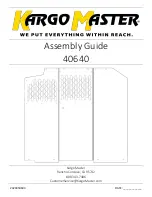
76
Safety and Security
Occupant safety
Air bags
Warning!
G
Air bags are designed to reduce the poten-
tial of injury and fatality in certain frontal
impacts (front air bags), side impacts (side
impact air bags and window curtain air bags)
or rollovers (window curtain air bags).
However, no system available today can
completely eliminate injuries and fatalities.
The deployment of the air bags temporarily
releases a small amount of dust from the air
bags. This dust, however, is neither injurious
to your health, nor does it indicate a fire in
the vehicle. The dust might cause some tem-
porary breathing difficulty for people with
asthma or other breathing trouble. To avoid
this, you may wish to get out of the vehicle
as soon as it is safe to do so. If you have any
breathing difficulty but cannot get out of the
vehicle after the air bag inflates, then get
fresh air by opening a window or door.
Warning!
G
To reduce the risk of injury when the front
air bags inflate, it is very important for the
driver and front passenger to always be in a
properly seated position and to wear their
respective seat belt.
For maximum protection in the event of a
collision always be in normal seated position
with your back against the seat backrest.
Fasten your seat belt and make sure it is
properly positioned on your body
(
컄
page 54).
Since the air bag inflates with considerable
speed and force, a proper seating and hands
on steering wheel position will help to keep
you at a safe distance from the air bag.
Occupants who are unbelted, out of position
or too close to the air bag can be seriously
injured or killed by an air bag as it inflates
with great force in the blink of an eye:
앫
Sit properly belted in a position that is as
upright as possible with your back
against the seat backrest.
앫
Adjust the driver’s seat as far as possi-
ble rearward, still permitting proper op-
eration of vehicle controls. The distance
from the center of the driver’s breast-
bone to the center of the air bag cover
on the steering wheel must be at least
10 inches (25 cm) or more. You should
be able to accomplish this by a combina-
tion of adjustments to the seat and
steering wheel. If you have any
problems, please see an authorized
Mercedes-Benz Light Truck Center.
앫
Do not lean your head or chest close to
the steering wheel or dashboard.
앫
Keep hands on the outside of steering
wheel rim. Placing hands and arms in-
side the rim can increase the risk and
potential severity of hand/arm injury
when driver’s front air bag inflates.
앫
Adjust the front passenger seat as far as
possible rearward from the dashboard
when the seat is occupied.
Summary of Contents for 2007 GL 320 CDI
Page 2: ...GL 320 CDI GL 450...
Page 23: ...22 At a glance Exterior view...
Page 25: ...24 At a glance Cockpit...
Page 27: ...26 At a glance Instrument cluster...
Page 29: ...28 At a glance Instrument cluster...
Page 37: ...36 At a glance Storage compartments...
Page 39: ...38...
Page 40: ...39 Getting started Unlocking Adjusting Driving Parking and locking...
Page 74: ...73 Safety and Security Occupant safety Panic alarm Driving safety systems Anti theft systems...
Page 217: ...216 Controls in detail Climate control...
Page 231: ...230 Controls in detail 3 zone automatic climate control...
Page 347: ...346...
Page 560: ...559 Technical data Weights Weights Roof load max 198 lb 90 kg...
Page 569: ...568...
Page 595: ......
















































